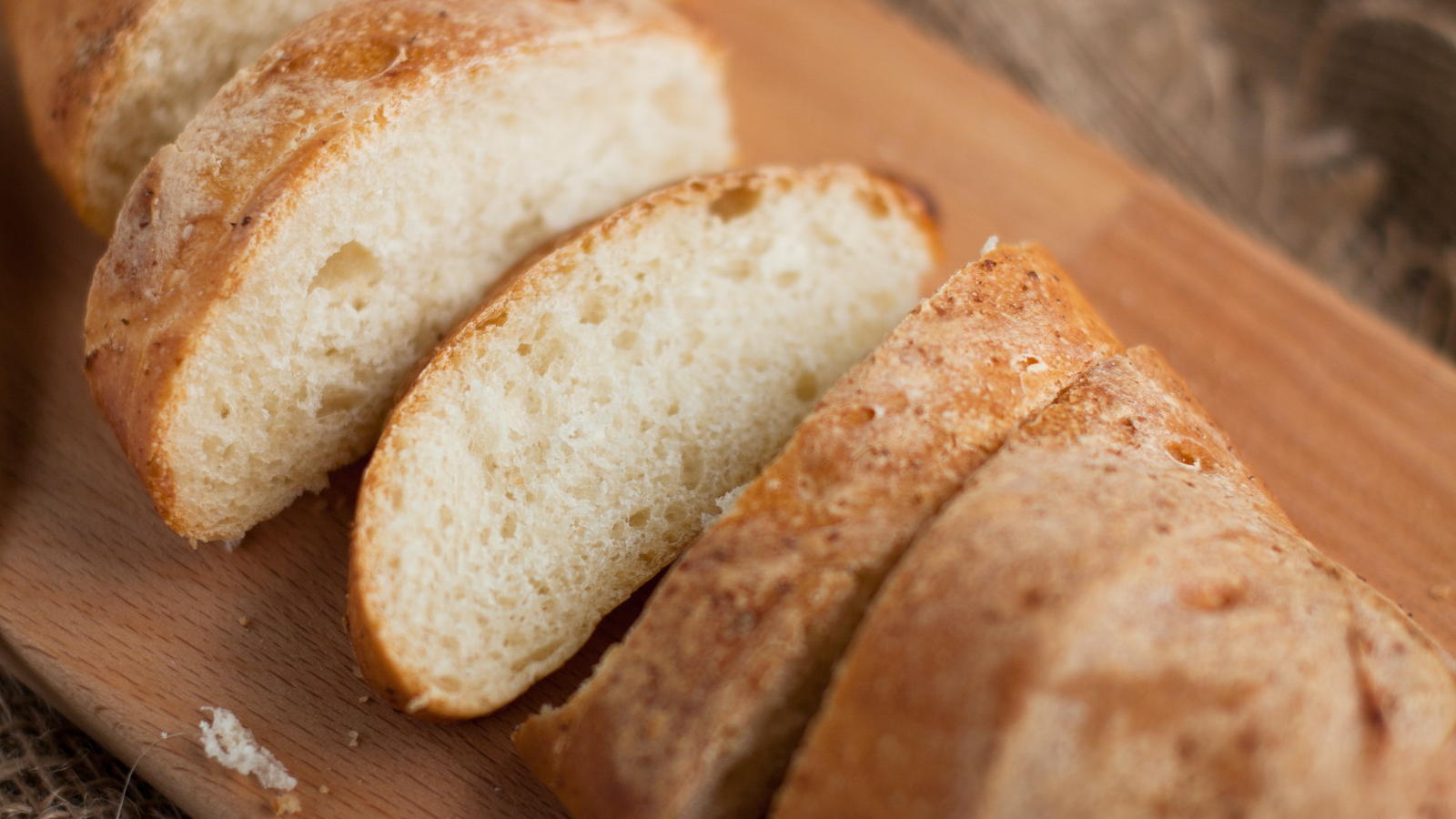Are Carbohydrates Necessary? Tips for Energy and Vitality
Eat more whole grains. Eat more fruits and vegetables. Eat more of a plant-based diet. Sugar is fine in moderation… Do any of these statements sound familiar?
I can tell you that I am awfully familiar with all of these statements. I used to hear them all the time, from my doctor s, the news, celebrities, even the government. Even now, political figures are telling people through multiple media sources that whole grains and other plant-based foods are the best things for your health. If you want to be healthy, lose weight, have the energy you need to get through the day or through a workout then you just need more fruit, vegetables, beans, and whole grains… at least that’s the conventional wisdom that’s pushed on everyone.
- Are carbohydrates really necessary in my diet?
- Are plants really healthier and better for you than meat or animal proteins?
- Can I only get the vitamins and minerals I need from fruits and veggies?
- Is sugar really that bad for me?

Have any of those question ever run through your mind?
Every one of those questions have run through my mind, especially within the last couple of years. I’ve spent a lot of my time, especially in the last 2 years, trying to learn as much as I can about food,
nutrition, the science, and research behind the conventional food recommendations that are given from doctors and the government. Given my experience with the “conventional wisdom” around nutrition, health, and fitness I really wanted to understand what the best diet was for me and what I have wanted to achieve in my own health and wellness journey. The conventional advice hasn’t worked for me, and I know that it hasn’t worked for a lot of people. I always ended up hungry, tired, cranky, had gut issues, didn’t see changes in my strength or physical wellness, or lost a bunch of my hair.
Sometimes, you have to go against the grain
What I’ve learned, through a lot of research, nutrition classes, seminars, and some thoughtful
experiments on myself, is that I operate and feel my best when I eat little to no carbohydrates every day. Part of the reason for this is I’ve discovered that I am quite addicted to sugar and other
carbohydrates. If I eat them, I have an exceedingly difficult time moderating my consumption and this leads me to a host of issues that I experience as a result, whether it’s bad gut and stomach problems, mood swings, fatigue, or just feeling like a sack of garbage overall. When I first figured this out, I really thought it was just me that had the problem, that it was an issue with my willpower that I couldn’t moderate my consumption of carbohydrates, no matter what they were. It didn’t matter if I were eating whole grain bread, sweet potatoes, or ice cream, I overate every single time and I would feel terrible, both physically and emotionally afterwards. It wasn’t until I researched sugar, carbs, and their impact on the human body that I learned something about why I had such a tough time with moderation.
Carbohydrates, and sugar in particular, are addictive
Numerous research studies, like the one linked here, highlight that sugar consumption lights up the same reward centers of the brain as other addictive substances, such as cocaine or nicotine. Eating sugar and other carbohydrates, especially hyper-palatable and highly processed ones, release dopamine into our bodies. Dopamine is a strong neurotransmitter tied to the reward circuit in our brains. Every time you eat something sweet, your body releases dopamine and your body associates sugar with reward. So, as it turned out, I was addicted to sugar and as a result, I knew that for me to be healthier and live the life that I wanted, I needed to break that habit. For me, the only way I could break my addiction was abstinence from sugar and other carbohydrates. It took a long time before I stopped craving them, but I felt so much better when I wasn’t eating them. I didn’t have brain fog, stomach problems, and I wasn’t ever “hangry” anymore which both my family and I enjoyed.
But what about “complex” carbohydrates? Aren’t those healthy for you?
So, the truth is, no matter what the carbohydrate is that you consume your body will turn the starch into sugar. The body doesn’t care or differentiate a sweet potato from white bread from agave nectar, it’s all sugar at the end of the day. When you eat sugar, no matter the form – oatmeal, chocolate, or quinoa – it impacts both blood sugar and insulin levels in the body far faster and harder than a couple of eggs and some pieces of sugar-free bacon ever could. It’s that increased circulating insulin that then becomes the problem, it causes the increased blood-sugar, from the high carb meal, to crash which then causes the body to release hunger hormones, like ghrelin, which drive the body into hunger mode. It’s a big part of the reason you get so hungry after a few hours if your meal consists primarily of carbohydrates.
Aren’t carbohydrates essential?
Carbohydrates are one of the three macronutrients that the body can use for energy or building blocks to maintain its own tissues and systems. As it turns out, the human body needs exactly zero
carbohydrates from the diet. There’s no such thing as an “essential carbohydrate” unlike proteins and fats, which are essential for us to consume to live. God made the human body to be massively intelligent in design. In the absence of carbs from the diet, your liver will make all the carbohydrates that it needs to provide energy to those cells and systems that require glucose. Through a process called gluconeogenesis, the liver can create glucose from either free glycerol molecules or through the breakdown of protein and then the body will use this self-made glucose to provide energy to blood cells and other cells that don’t have mitochondria and therefore can’t make their own energy.
Don’t we need to eat fiber to be healthy?
I’m sure you all have heard that statement before, “you need fiber for your gut health.” I know I have, and I see it in the news, magazines, and in the media all the time. When I tell people that I don’t eat carbs, including any fruits or vegetables, they ask me, “How on earth do you poop? You must be really stopped up.” The truth is, I have no trouble with it. My gut health is better now than it ever was when I was eating tons of leafy green vegetables and beans, which was only just a couple of years ago for me. I don’t have painful bloating or constipation and I’m quite regular. Turns out, we humans can’t ferment and process plant fiber in our gut, we don’t have the right pieces of plumbing in our large intestine to do that. Our large intestines, in comparison to other primates that are primarily plant-eaters, is ridiculously small and we have a tiny cecum. The tiny cecum is a key detail, as it’s the part of the large intestine that’s needed to ferment and break down plant fiber into usable material. As a result of having a tiny cecum, plant fiber basically passes through us undigested.
Breast-fed babies don’t eat fiber, but they poop without any issues all the time
For those parents out there, that breast fed their kids, you can relate to experiences that I had all the time with my own kids when they would blow out a diaper. Like a catastrophic, class-5, diaper blow out where you had to throw out that onesie as a lost cause. I know I would think to myself, “where in the heck are they making all of this poop from?” Now, after learning everything that I have, I can look at that in a different light. Exclusively breast-fed babies eat no fiber whatsoever and yet, they are non-stop poop factories and in general, if they aren’t receiving any allergens from their mother’s milk, don’t have a lot of digestive distress. Their gut doesn’t really change from being a baby to being an adult, at least not in form or structure, so if they don’t need fiber to be healthy, they become a clear example that we really don’t either as an adult.
Plant fiber is not the only or even best food for our gut flora
Fermentation of different foods in our intestinal tract feeds our gut flora. Cellulose, or plant fiber, is far less fermentable than animal products like casein, collagen, glucosamine, or even chicken cartilage. It’s better for your gut bacteria to eat foods that contain those prebiotics than it is to eat plants that are high in fiber.
You must figure out what’s right for you and, honestly, what’s worth it to you.
Everyone’s body is different, that’s part of the reason I get so annoyed by the conventional wisdom of eat more plant-based, eat less animal protein and fat, and just move more. That doesn’t work for
everyone, and I would argue that it doesn’t work for most people. Roughly 2/3 of the American
population has metabolic disorder or type 2 diabetes, which are diseases of insulin resistance.
Carbohydrate consumption drives the insulin response faster and harder than eating any other
macronutrient. The conventional wisdom isn’t working. I had to figure out what foods made me feel the best and nourished my body in the best and most natural way, and for me that means eating primarily animal protein and fat with little to no carbohydrates. To me, not feeling tired, not having stomach problems, and getting physically stronger is worth more to me than the 30 seconds to a minute of enjoying the taste of a donut or bread but then having to suffer through feeling sick for days afterwards.
Here are a couple of quick tips that you can use to start seeing what foods make you feel your best and are most healing and nourishing for your body.
- Start slowly, try cutting out added sugars from processed or packaged foods. This can be difficult as most grocery items that come in a box or bottle now have added sugars in some way, shape, or form,
- Try increasing the amount of animal protein that you eat each meal. It doesn’t have to be a lot;
4-6 ounces of protein would work and provide you the right amount of complete proteins that
you need. - If you habitually drink some kind of sugared drink, try easing back on the amount you have each day and see how this makes you feel.
- Try to focus on eating some kind of animal protein for breakfast. This doesn’t even have to be
eggs, especially if you have an allergy. I really like eating bacon and seasoned ground beef for
breakfast, they’re high in protein and fat so I stay satiated for much longer. See how this change makes you feel. Try to get a sense of if you’re fuller longer.
Breaking away from carbohydrates is tough, even reducing the amount that you eat daily can feel
impossible. To be honest, everyone’s different and their tolerance for sugar in their bloodstream is
different. However, if you are metabolically challenged like I was, reducing the amount of carbs that you eat might be the one step that you need to take to heal your body and provide it with the nourishment that it needs to function properly again. God created our bodies to be beautiful, intelligent machines and once you start taking the steps you need to heal, your body will correct itself.

If you want to eat better, get stronger, and lose weight, then let’s talk. Request a call with me now.
